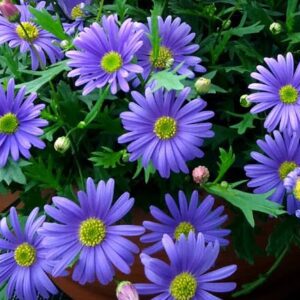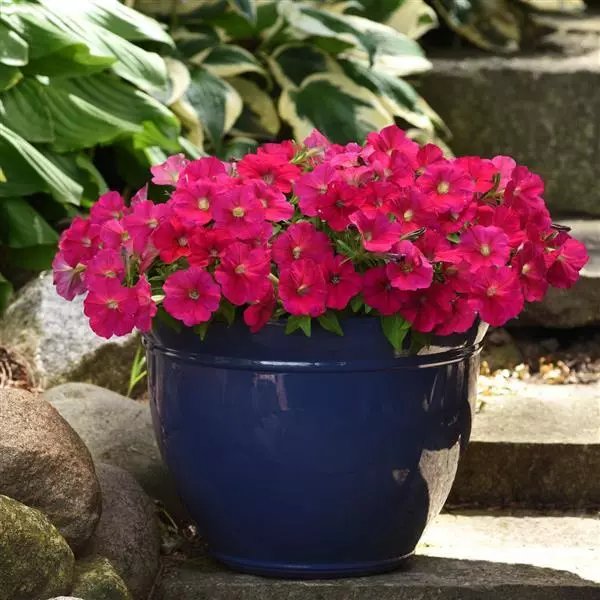Lisianthus P Sow seeds in early winter (mid-December to January, or 16 to 22 weeks before your average last frost date). Because lisianthus seed is so fine, you’ll usually find it already pelleted. Saturate a good-quality, fine peat and vermiculite-type potting medium and spread the seed on top. Cover the container with a plastic dome or a plastic wrap secured with a rubber band to hold in the moisture. Place fluorescent or grow lights ½ to 1 inch above the cover on your container. The seeds should receive 16 hours of light per day until the seedlings start to emerge, in about 2 weeks. During this time keep the temperature constant — 70 to 75 degrees.
Remove the dome or plastic once the seedlings start to emerge, and adjust the lights so they’re 1½ to 2 inches above the top of the plants. Nighttime temperatures can be cooler now — 60 to 65 degrees. But don’t let them drop much below 60 degrees. Water the growing medium from the bottom now and keep it moist to the touch, not saturated. Provide good ventilation. You may start feeding with a calcium-based fertilizer (13-2-13) at half strength once a week now. At the end of this stage, roots and the first leaves, or cotyledons, have developed.
Transplant the seedlings into 4-packs after 7 to 8 weeks, when the seedlings have developed 2 or 3 sets of true leaves. At this stage, the seedlings are not as prone to rosetting, so it’s not as critical to keep temperatures below 75 degrees. As you move them, grasp a leaf and use a small spoon to scoop out as much of the medium with the roots as possible, as the roots are very sensitive. Plant the seedlings so that the bottom leaves are just above the mix. Continue to bottom water the containers, but increase the feeding to half-strength every watering. Let the medium dry out a little between watering now.
Move the young plants out to the garden when they are 3 to 4 inches high and have 3 to 4 sets of true leaves (usually around the end of May or beginning of June). Place them outside for gradually longer periods of time to harden them for a couple of weeks first. Then plant them in moist, well-drained soil where they will get at least 6 hours of sun a day. The plants bloom from July to frost if you keep them deadheaded.









Reviews
There are no reviews yet.